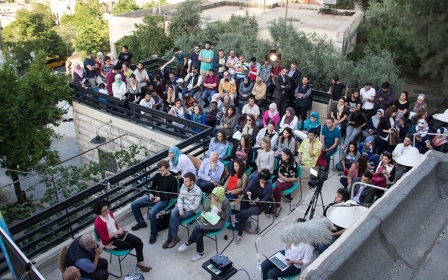Canada revokes citizenship of dual national under controversial anti-terror legislation

Canada has stripped a dual Jordanian-Canadian of his citizenship in the first case of its kind since a controversial new anti-terror law was passed earlier this year.
Zakaria Amara was arrested in 2006 along with 17 others as part of a wave of arrests in Toronto, and was charged with masterminding a series of attacks that would include storming parliament, planting truck bombs in crowded areas and beheading the prime minister.
Originally sentenced to nine years in prison after pleading guilty to two counts, his sentence was later extended to life, the stiffest sentence ever handed down under Canada’s anti-terror laws.
On Saturday Amara received a letter in prison informing him that his Canadian citizenship had been revoked, meaning he could be deported to Jordan once he has served his sentence and becomes eligible for parole in 2016.
“He expressed violent disloyalty for this country – hatred for Canada,” said Canada’s Defence Minister Jason Kenney on Saturday. “In so doing … he effectively renounced his own Canadian citizenship.”
Amara, who grew up and attended secondary school in Canada, had his citizenship revoked under controversial anti-terror legislation known as Bill C-51.
This is the first time a Canadian citizen has had their citizenship revoked under the legislation since it came into force in June.
The bill, which sparked fierce opposition from rights groups, enables authorities to share information about suspects more easily and carry out “preventive arrests”.
The bill was criticised by groups including Amnesty International, which warned that the legislation, designed to target terrorism, could be used to crack down on environmental activists and other government opponents.
The decision to revoke Amara’s citizenship under the legislation attracted criticism from lawyers, who warned that the move created a dangerous precedent.
“The day that we sacrifice a lot of our legal values and legal precedents to fear, to demands for greater security, we lose track of who we are as Canadians, of who we are as a people,” immigration lawyer Joel Sandaluk told CTV News Channel on Saturday.
Local news sites reported that several of Amara’s co-defendants are now also due to have their Canadian citizenship revoked.
New MEE newsletter: Jerusalem Dispatch
Sign up to get the latest insights and analysis on Israel-Palestine, alongside Turkey Unpacked and other MEE newsletters
Middle East Eye delivers independent and unrivalled coverage and analysis of the Middle East, North Africa and beyond. To learn more about republishing this content and the associated fees, please fill out this form. More about MEE can be found here.




